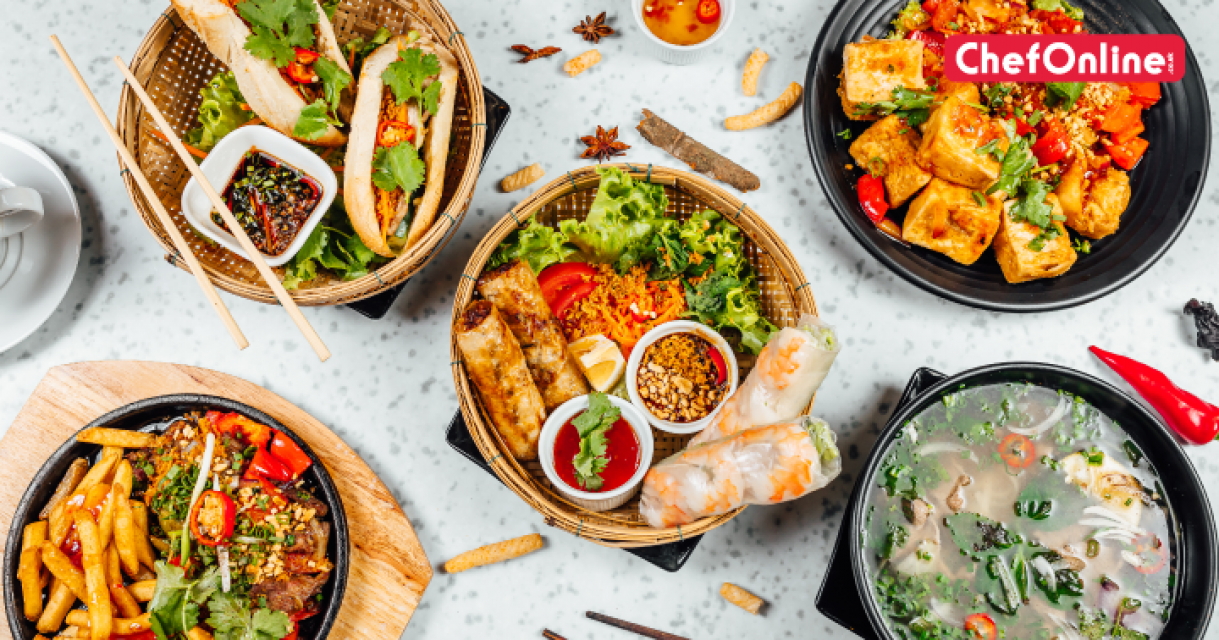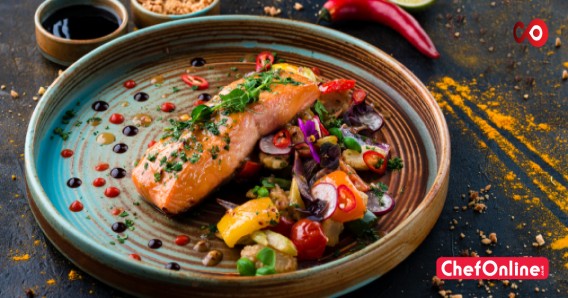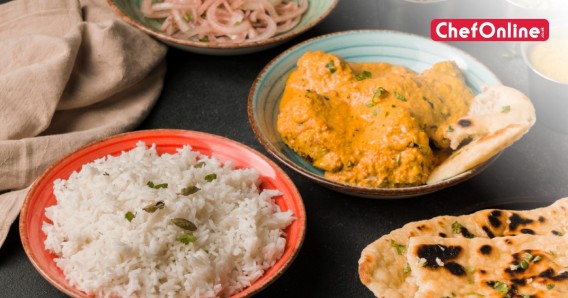The United Kingdom has long been celebrated for its diverse culinary scene, showcasing flavours from around the world. Among the various cuisines, Asian fare has carved a prominent niche, captivating the palates of UK residents.
In this article, we will delve into the growing popularity of Asian cuisine in the UK, explore the dominant Asian culinary traditions, analyse the impact on the UK culinary industry, discuss the challenges and opportunities, and envision the future of this vibrant culinary landscape.
The Growing Popularity of Asian Cuisine in the UK
In recent years, there has been a remarkable surge in the demand for diverse culinary experiences across the United Kingdom. As a nation that thrives on multiculturalism and embraces globalisation, UK residents have increasingly sought out new and exciting flavours to tantalise their taste buds.
Asian cuisine, with its rich and varied offerings, has emerged as a true delight, satisfying the cravings of food enthusiasts across the country.
The appeal of Asian cuisine lies in its ability to offer a multifaceted dining experience. From the bold and aromatic spices of Indian curries to the delicate artistry of Japanese sushi, each Asian cuisine brings a unique flavour profile to the table.
The UK's diverse population has played a significant role in driving the popularity of Asian cuisine. Individuals with cultural ties to these regions seek the taste of their homelands while others embrace the opportunity to explore new culinary territories.
Asian Cuisines Dominating the UK Food Scene
When it comes to Asian cuisine in the UK, several culinary traditions have risen to prominence, shaping the food scene across the country.
Indian
Indian cuisine, with its tantalising curries, fragrant biryanis, and a diverse range of vegetarian options, has long been a favourite among the Brits. The distinct flavours and vibrant spices of Indian dishes have become a part of the UK's culinary fabric, and it is not uncommon to find Indian restaurants in every corner of the country.
Chinese
Chinese cuisine has also established a strong foothold in the UK, not only through its ubiquitous takeaways but also through its fine dining establishments. Chinese restaurants have become go-to destinations for family gatherings, celebrations, and casual meals alike. From crispy aromatic duck to stir-fried noodles and dim sum, the array of dishes available ensures there is something to satisfy all types of taste preferences.
Japanese
Japanese cuisine, with its emphasis on simplicity, balance, and clean ingredients, has captivated UK residents with its exquisite flavours and artistic presentation. Sushi, sashimi, ramen, and tempura have all found their place on the menus of countless Japanese restaurants, offering an authentic taste of Japan.
Thai
Thai cuisine, known for its bold and aromatic spices, has gained a devoted following in the UK. From the fiery heat of green curry to the tangy flavours of tom yum soup, Thai restaurants have become a popular choice for those seeking vibrant and zesty culinary experiences.
Korean
Korean cuisine, once relatively unknown in the UK, has experienced a significant surge in popularity. The rise of Korean BBQ and the Korean street food trend have introduced UK residents to the bold and innovative flavours of this cuisine. From spicy kimchi to succulent grilled meats, Korean cuisine has become a trendsetter, attracting a diverse range of food enthusiasts.
Beyond the dominant Asian cuisines, there is also a growing interest in exploring emerging culinary traditions from countries such as Vietnam, Malaysia, and the Philippines. These cuisines bring their own unique flavours and regional specialties, offering a fresh and exciting twist to the UK food scene.
Impact on the UK Culinary Industry
The influence of Asian cuisine on the UK culinary industry is undeniable. It has not only broadened the horizons of local chefs and restaurateurs but has also given rise to fusion and innovation in British-Asian cuisine.
Chefs are embracing the flavours and techniques of Asian cooking, infusing them with local ingredients and culinary traditions to create distinctive and exciting dishes. The melding of traditional Asian recipes with British elements has resulted in a fusion cuisine that tickles the senses and offers a new perspective on both cultures.
The rise of Asian cuisine has not only contributed to the enrichment of the UK's culinary landscape but has also had a positive impact on the economy. The growing demand for Asian food has led to the establishment of numerous restaurants, takeaways, and food delivery services, creating job opportunities within the industry.
Additionally, the influx of tourists attracted to the diverse culinary offerings has boosted the hospitality sector, further contributing to economic growth.
Furthermore, the increasing popularity of Asian cuisine has fostered cultural exchange and diversity in the food industry. As more Asian chefs and restaurateurs bring their culinary expertise to the UK, they not only share their traditional dishes but also introduce new culinary trends and techniques. This cultural exchange not only enhances the dining experience for UK residents but also fosters a deeper understanding and appreciation of Asian cultures.
The Future of Asian Cuisine in the UK
Looking ahead, the future of Asian cuisine in the UK appears promising.
More Cross-Cultural Collaboration
With the continued growth and evolution of the Asian culinary scene, we can expect further fusion and experimentation, resulting in innovative flavours and concepts.
The ongoing culinary exchange between British and Asian chefs will continue to shape the UK's culinary landscape, with the potential for cross-cultural collaborations leading to even more exciting dining experiences.
More Culinary Diversity
As the UK population becomes more aware of Asian ingredients and cooking techniques, the appreciation for this diverse cuisine is set to soar. The availability of authentic Asian ingredients in local markets and the increasing popularity of Asian cooking classes and food festivals contribute to the growing interest in recreating Asian flavours at home. This culinary exploration not only offers a new way to experience Asian cuisine but also fosters cultural understanding and appreciation.
Increase in Non-traditional Eating Places
Furthermore, the future of Asian cuisine in the UK is not limited to traditional restaurants. The rise of street food markets, food trucks, and pop-up events has created platforms for aspiring chefs and home cooks to showcase their skills and introduce new and exciting flavours to the public. These unconventional dining experiences provide opportunities for diners to indulge in Asian cuisine in a casual and interactive setting, further diversifying the UK culinary scene.
Final Thoughts
Asian cuisine has undeniably become a defining element of the UK culinary industry with its diverse range of flavours, ingredients, and cooking techniques. Asian cuisine offers an expansive culinary journey that transcends borders. From the well-established Indian and Chinese cuisines to the emerging flavours of Korean, Vietnamese, and Filipino fare, Asian cuisine in the UK continues to evolve, enriching the culinary landscape and offering exciting opportunities for chefs, restaurateurs, and food enthusiasts alike.






